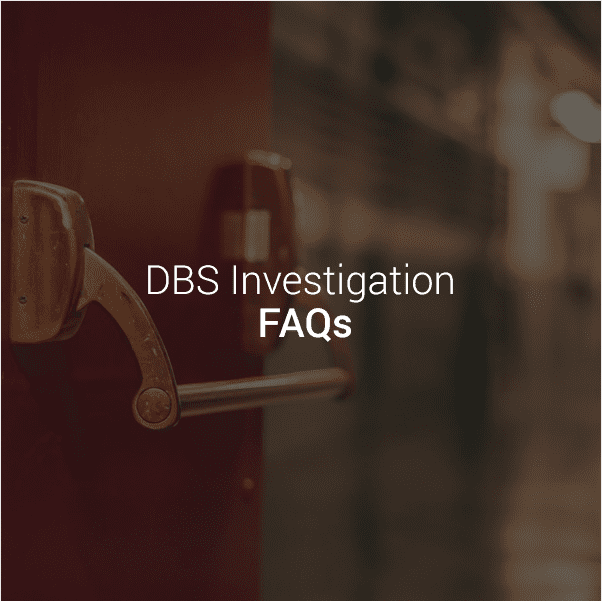DBS Investigations Frequently Asked Questions
Home → DBS Appeals & Referrals Solicitors → DBS Investigations Frequently Asked Questions
Being referred to the DBS can be a very stressful and emotional time, especially if your career is centred around children and vulnerable adults. If you are looking to appeal to the DBS to ensure you avoid their barred list, start by reading our DBS FAQs guide to ensure you’re as informed as you can be about the process. For any additional questions, feel free to contact our DBS solicitors.
1. What do the DBS do?
The DBS make decisions whether to prevent a person from working with children or vulnerable adults, in a paid or unpaid capacity. The DBS consider barring a person if they have;
- been convicted or cautioned for certain criminal offences;
- harmed a child or vulnerable adult;
- been considered to pose a risk of harm to a child or vulnerable adult.
2. Who might refer me to the DBS?
Referrals to the DBS are usually made by schools, the National College for Teaching and Leadership (NCTL) the Care Quality Commission, NHS hospitals and other regulators such as the General Medical Council or the Nursing and Midwifery Council, or social care trusts who employ people to provide care to children and vulnerable adults. This can be in a paid for capacity or as a voluntary worker.
3. When might I be referred to the DBS?
A referral should only be made to the DBS when an organisation has permanently removed a person from regulated activity, such as a dismissal. The referrer must believe that the person has:
- Engaged in relevant misconduct (harmed or placed a child/vulnerable adult at risk of harm); or
- Satisfied the harm test (that no harm has been done, but that the risk of harm is significant); or
- Received a criminal caution or conviction for a relevant criminal offence.
The organisation has an obligation to fully investigate the allegations and only make a referral to the DBS where there is evidence that there is genuine merit to the allegations.
4. What investigations will the DBS make?
None, the DBS has no investigatory powers. They rely on the information provided with referrals. If you have been referred to the DBS and think that helpful evidence may be held with another organisation, you will need to tell the DBS about this so that they can contact them to ask for it.
5. What does it mean to be on a barred list?
If the DBS has decided to include a person on a barred list, it will then be a criminal offence for the person to flout this and work or volunteer, or seek or offer to work with children or vulnerable adults.
Organisations which have people working with children or vulnerable adults will require a DBS check before employing someone. The DBS check should reveal if they are on a barred list.
6. Will the DBS publicise putting me on a barred list?
No, the DBS operate a confidential process. There are no public hearings involved. The function of the DBS is to stop unsuitable people from working with children and vulnerable adults. The outcome of a decision will only be given to an organisation who demonstrates a legitimate interest, such as a prospective employer etc. They won’t even necessarily reveal the outcome of their decision to the referring organisation.
7. How long will a bar from the DBS last?
If the DBS include you on a barred list, it lasts for your lifetime. However, it may be possible in the future to request a review of their decision.
8. Ask another question
Do you have another question relating to DBS that hasn’t been covered in our guide? Feel free to ask Richard Nelson LLP’s DBS solicitors and we’ll endeavour to get back in touch with you as soon as possible.
If you’re looking to appeal a DBS referral and require representation or more advice, feel free to contact our DBS Solicitors for an initial free consultation.




